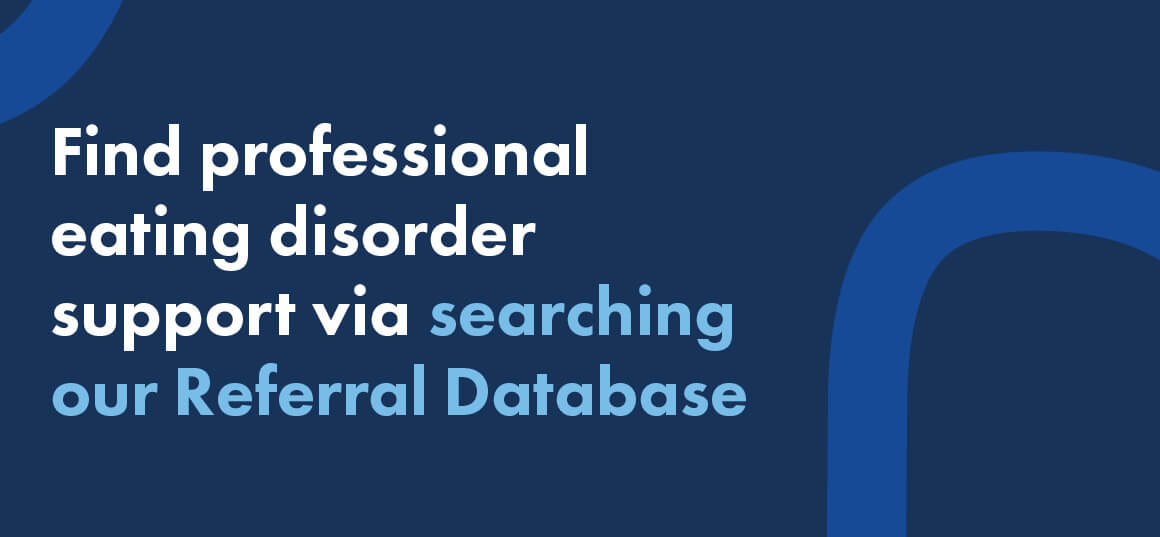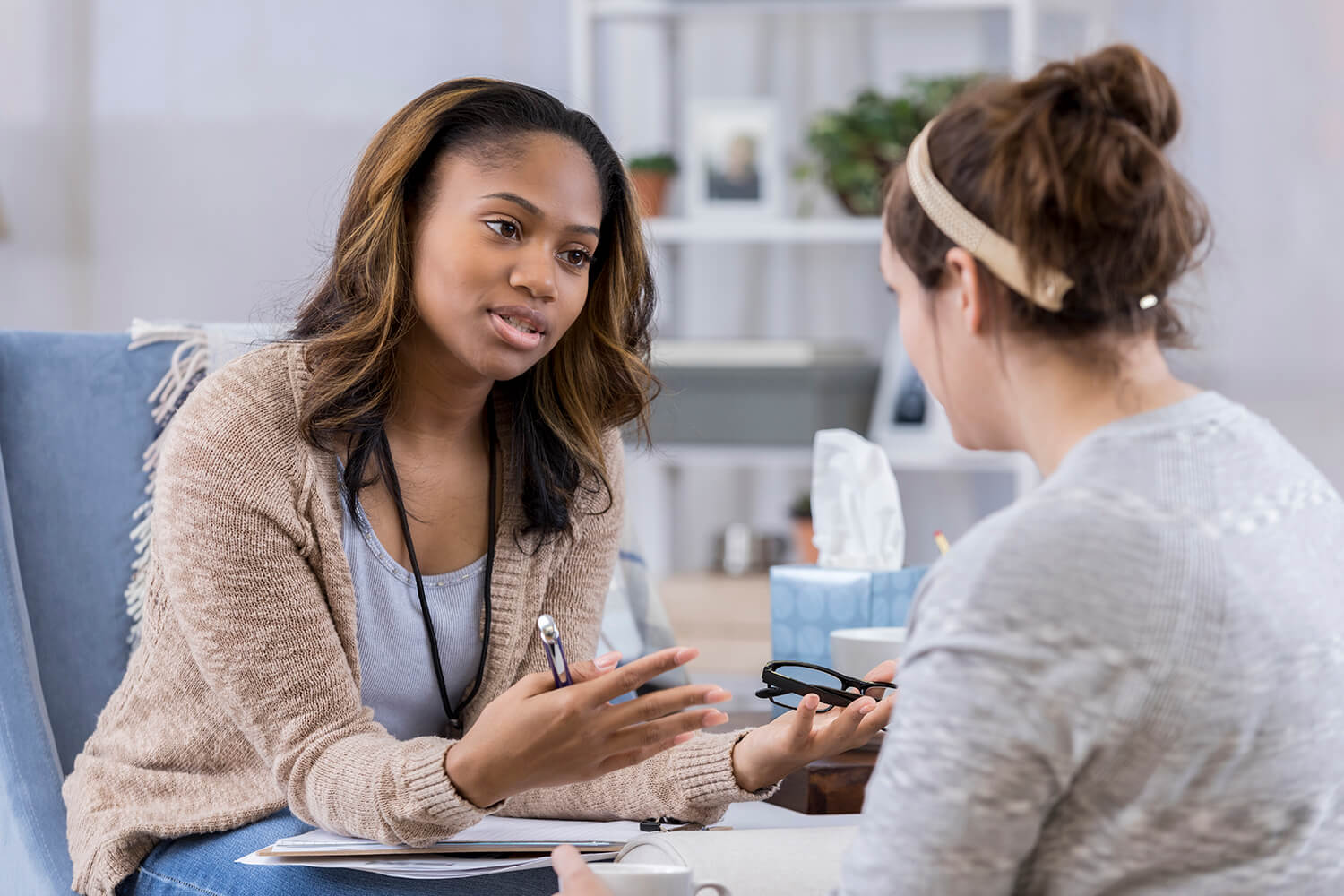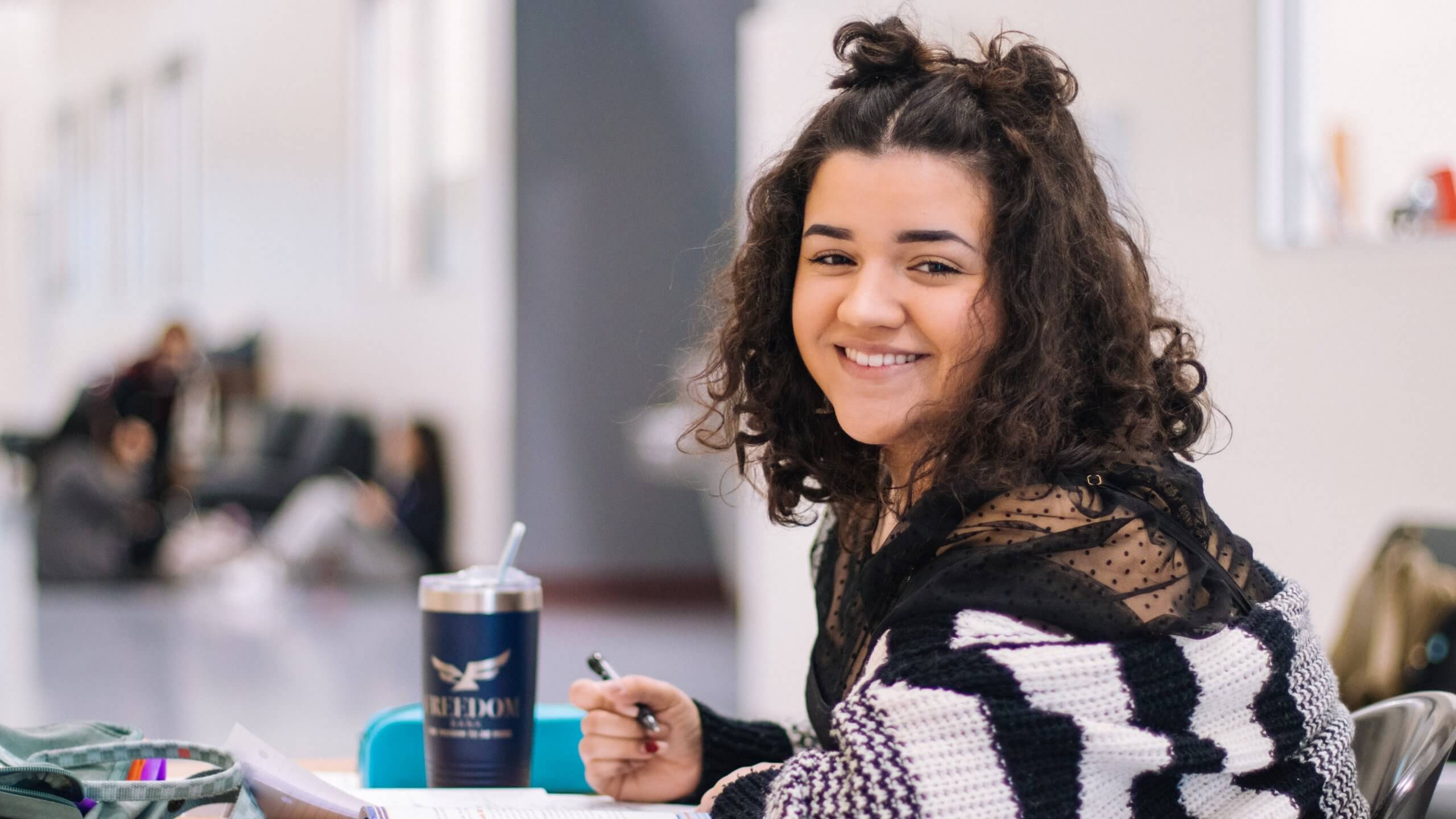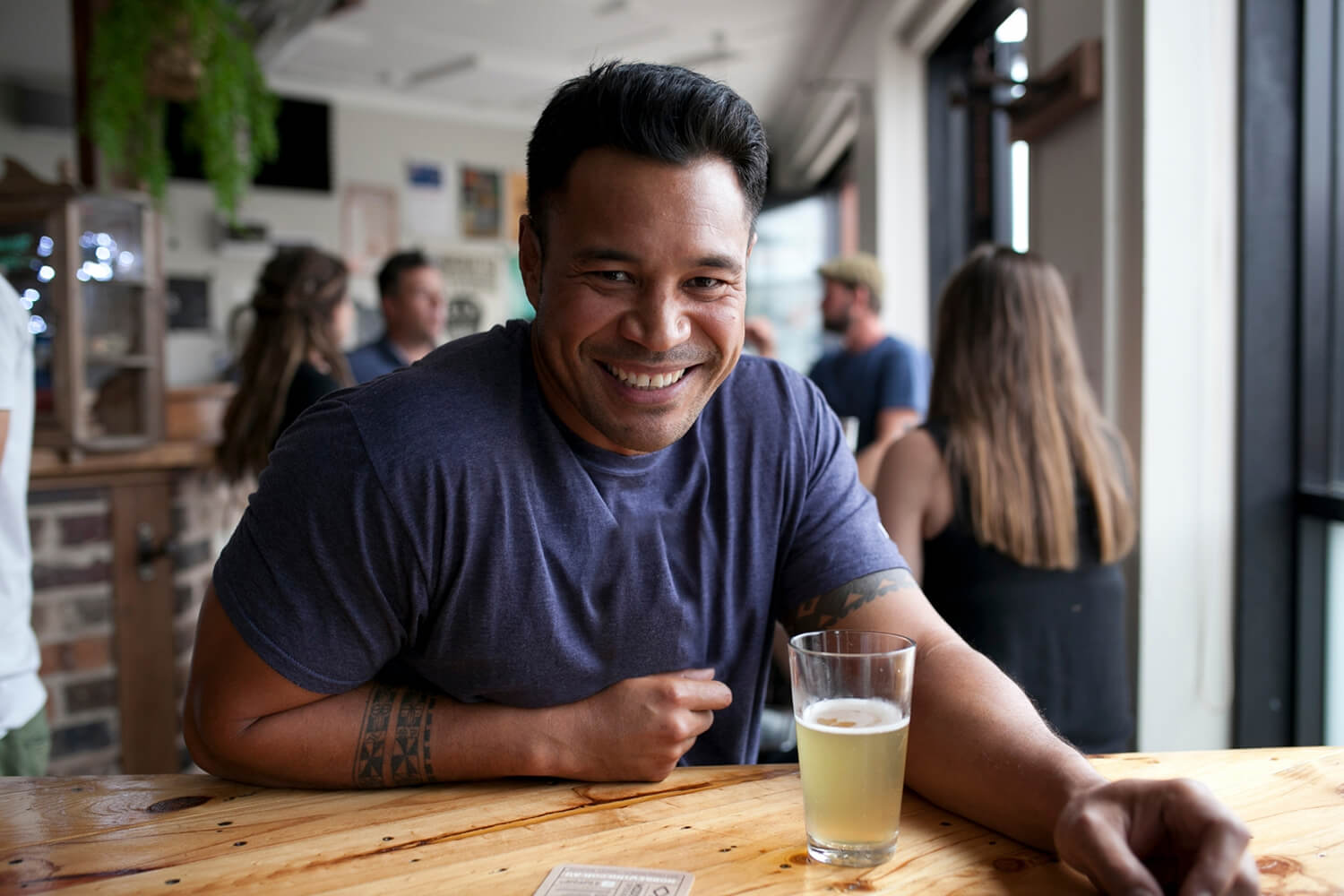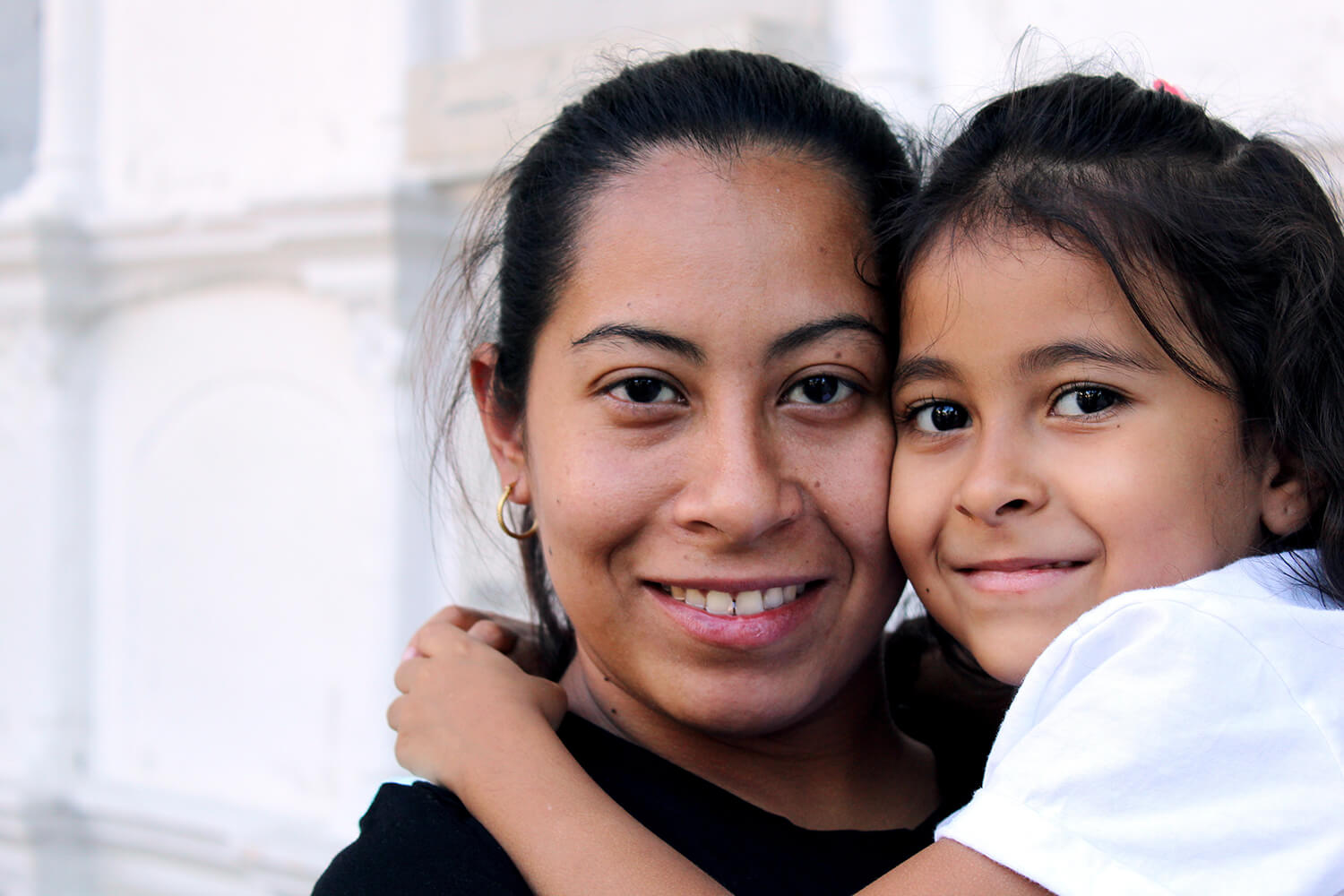Body Neutrality: What is it and why is it important?
The relationship we have with our bodies constantly evolves throughout our lifetime. With body image concerns on the rise, this relationship has consistently been identified as increasingly important.
This Summer of Kindness, we want you to take a step back and become more curious about this relationship, determining how to navigate it in a more positive and productive way.
Social media combined with diet culture and the growing health and wellness industry can be a difficult arena to navigate. Often, those who push back against this culture use concepts such as body positivity and body acceptance, but to many people, this can feel like an overwhelming place to start. This is where body neutrality can often become helpful.
In a 2020 survey on ‘Australians’ Experience of Body Image and Its Impact on Day-To-Day Life’, Butterfly found that 62.3% of respondents spend a lot of time thinking about body weight and shape, while ore than half (53.6%) of respondents rarely or never speak positively about their appearance. As so many Australians struggle with body preoccupation and negative body image, body neutrality is a useful concept as it begins to shift the focus away from these often-damaging thoughts, ideas, and opinions of oneself.
If you’re unfamiliar with these concepts, let’s look at them for a moment:
Body Positivity
The aim of body positivity is to challenge the limiting stereotypical beauty and body ideals that are often seen in western society. Body positivity sees all bodies as ‘good’, no matter their shape, weight, colour or size. It is inclusive and aims to celebrate body diversity with a strong focus on the inclusion and acceptance of larger bodies.
Body Acceptance
For some, the idea of celebrating and liking what they see in the mirror can feel impossible and unrealistic. This is where body acceptance invites people to explore why they may be feeling dissatisfied and uncomfortable in that moment. Instead of reacting to these feelings by turning on their bodies, body acceptance encourages people to work through and navigate feelings in a compassionate and accepting way. Body acceptance is seen as a lifelong process and practice.
Body Neutrality
This concept shifts the focus from positivity and acceptance and into the idea that a person can exist in their body without thinking too much about how it looks. Body neutrality suggests that a body is simply a vessel that carries us through life, and is never the most important thing about us.
When thinking how body neutrality may look for you, this quote by actor and founder of @i_weigh Jameela Jamil may be helpful:
‘Imagine just not thinking about your body. You’re not hating it. You’re not loving it. You’re just a floating head. I’m a floating head wandering through the world’
Unlike body positivity, body neutrality differs as it does not suggest the need for any positive feelings towards one’s appearance. You don’t have to love, or even like, your body, but you can accept and care for it, regardless of how it looks. The focus is instead on functionality and looking beyond physical appearance as the sole indicator of worth.
“It sees the body as a vehicle, and it doesn’t matter what it looks like” – Anne Prior, Body Neutrality Coach and Intuitive Eating Counsellor.
Is body neutrality something you should be working towards?
Body neutrality can be an important first step towards body acceptance, as it moves you away from the current negative, judgmental, and potentially damaging thoughts and feelings you may have towards your body.
“Personally, I’ve always had a negative relationship with my body. When activists, influencers and at times, professionals, suggest working on body positivity and acceptance, I feel overwhelmed. Right now, that doesn’t feel attainable but what does feel attainable is moving away from disliking my body and into a place where I’m thankful for what it does for me. Body neutrality has allowed me to appreciate how my body functions for me – I can hug my loved ones, walk along the beach, play with my dog, and travel the world. Neutrality has helped dull overly critical thoughts.” – Tyler-May, Sunshine Coast QLD
If you are someone who has experienced body image concerns or struggles with a negative relationship with your body, body neutrality could be a great concept for you to focus on.
Where do I start?
A helpful place to start when beginning your journey towards body neutrality is by asking yourself what you’d like to achieve. This could look like:
- Reduce body checking behaviours
- Reduce negative self-talk towards my body
- Improve my understanding of how my body functions for me
- Practice gratitude for what my body allows me to do
Once you’ve gathered a broader idea of what body neutrality may look like for you, this is where you can start setting goals. For example:
‘This week I will write down one thing my body has done for me each night before I go to bed’. It may be helpful to note down any feelings you have towards your body at the beginning of the week and again at the end.
This will begin to shift your attention away from your appearance, allowing you to focus more on important aspects of life such as memories and experiences.
“I wanted to learn how to cope when my body image was not so good. I’d spent 6 years being a vessel for my eating disorder and now my personality, humour and sense of purpose were finally coming back. I was able to be a good friend and daughter again, I was finding my voice in advocacy and activism. These things made me feel better about myself than loving my body ever could” – Mia Findlay, Butterfly Foundation Ambassador
If you have lived or living experience of body image concerns, disordered eating or an eating disorder, it may be helpful to complete these practices under the guidance of a professional. If you need help finding support, use Butterfly’s Database to search for qualified eating disorder practitioners closest to your area.
Curating your social media
Another contributor to the way we view our bodies is our engagement with social media. When beginning to practice body neutrality, a crucial step can be filtering through and unfollowing or muting accounts that cause you to pay more attention to your body. When engaging with social media pages, ask yourself the following:
- Is this account causing me to compare/judge/alternate my body or appearance?
- How do I feel when viewing this content?
- Does this account cause me to think about my body more?
- Does this account help me to practice body neutrality?
For more information on how body image and social media are related, read our article ‘What role does social media play in the development of negative body image and eating disorders’
Acknowledge and reframe body thoughts or conversations
It can be difficult to live in an appearance and diet culture obsessed world. Conversations about dieting, body shape changes, weight gain/loss and appearance are often commonplace and can make practicing body neutrality difficult.
If someone makes a comment about your, or others, appearance/weight/shape, it’s ok to take a step back and let them know these types of conversations are not productive or helpful. You could say:
“Talking about weight/appearance is difficult for me. I am aiming for a more neutral relationship with my body, and would appreciate it if we could talk about other topics that aren’t related to appearance. We are worth so much more than our looks or size anyway!”
If you notice negative thoughts about your body creeping in, reframe them and remind yourself your body is your home. The ‘ideal body’ is a socially constructed phenomenon that doesn’t exist, and you weren’t put on this earth to spend your life at war with your body when it inevitably fails to meet society’s unrealistic expectations.
For example, one intrusive, negative thought might be ‘[Insert body part] looks so disgusting today’. This could be reframed to “Insert body part] helps me move through the world and I am grateful because it allows me to do XYZ”
Be patient with yourself
Especially for those who have experienced negative body image, body neutrality isn’t something that will be achieved overnight.. Be patient with yourself and keep practicing.
If at any time you feel overwhelmed, reaching out for support is crucial. This may come in the form of:
- Trusted friends and family
- A therapist or recovery coach
- Health professionals such as dietitians and doctors, ideally those who specialise in eating disorders.
- The Butterfly National Helpline can provide support to help you on your path to an improved relationship with your body. Call 1800 ED HOPE (1800 33 4673), chat online or email support@butterfly.org.au – confidential and free support is available 7 days a week, 8am-midnight (AEDT).
Further reading
- How to boost body image
- Body image explained
- Positive Body Image – Navigating the terms
- Lived Experience Insights (BIEDAW)
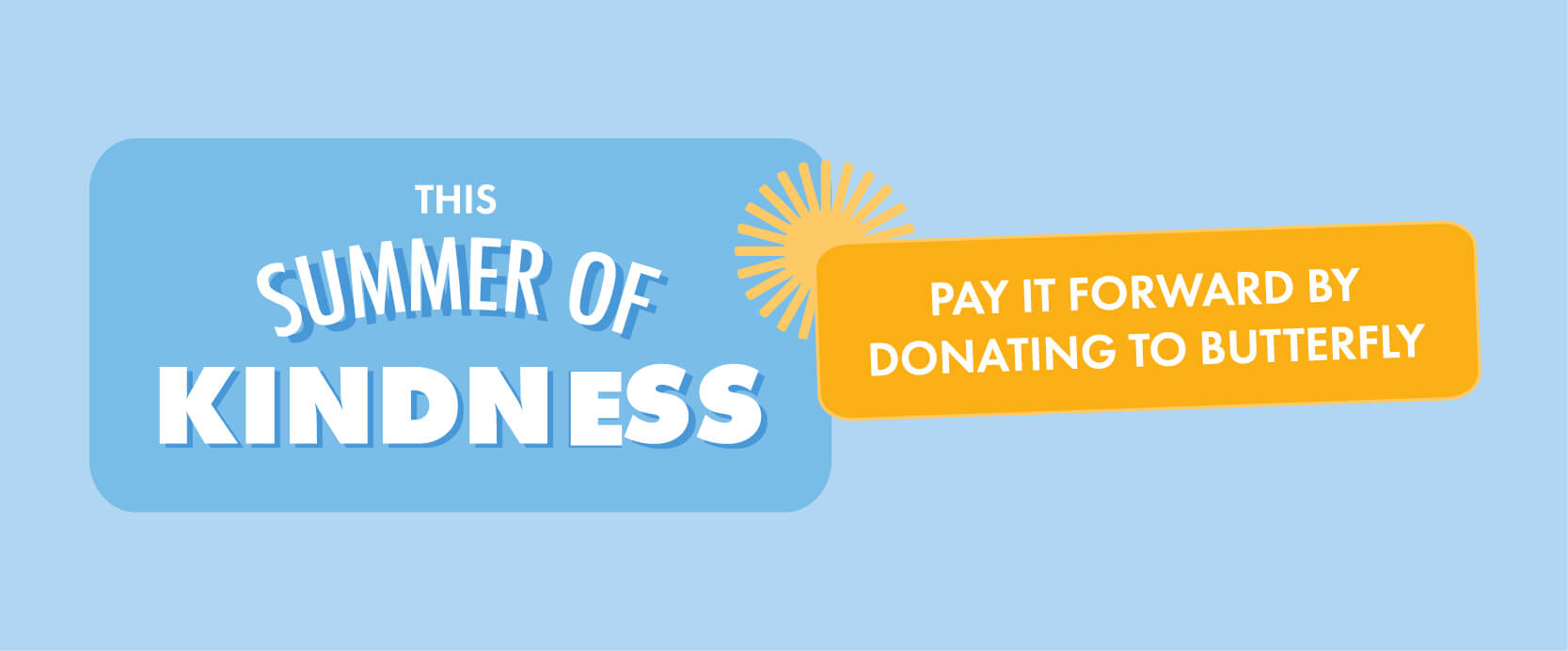
Join Butterfly for a Summer of Kindness
Whether it’s diet culture telling us to lose weight and tone up for the New Year, warmer weather meaning less clothes and more attention on the body, or increased socialising around festive season events, navigating this time of year can be tricky for anyone. It’s especially difficult for anyone experiencing body image issues or an eating disorder.
That’s why we’re campaigning for an alternative message – to be kind to our bodies and others’ this summer, while raising crucial funds to support our vital programs and services for people living with eating disorders and body image concerns.
We desperately need to provide more support for the 1 million plus Australians living with eating disorders – but we can’t do it without your help. This Summer of Kindness, pay it forward by donating to Butterfly.
DONATE now
learn more about SUMMER OF KINDNESS









